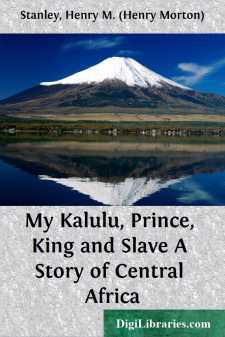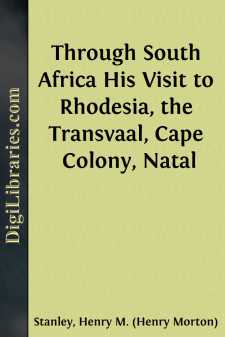Categories
- Antiques & Collectibles 13
- Architecture 36
- Art 48
- Bibles 22
- Biography & Autobiography 813
- Body, Mind & Spirit 142
- Business & Economics 28
- Children's Books 17
- Children's Fiction 14
- Computers 4
- Cooking 94
- Crafts & Hobbies 4
- Drama 346
- Education 46
- Family & Relationships 57
- Fiction 11829
- Games 19
- Gardening 17
- Health & Fitness 34
- History 1377
- House & Home 1
- Humor 147
- Juvenile Fiction 1873
- Juvenile Nonfiction 202
- Language Arts & Disciplines 88
- Law 16
- Literary Collections 686
- Literary Criticism 179
- Mathematics 13
- Medical 41
- Music 40
- Nature 179
- Non-Classifiable 1768
- Performing Arts 7
- Periodicals 1453
- Philosophy 64
- Photography 2
- Poetry 896
- Political Science 203
- Psychology 42
- Reference 154
- Religion 513
- Science 126
- Self-Help 84
- Social Science 81
- Sports & Recreation 34
- Study Aids 3
- Technology & Engineering 59
- Transportation 23
- Travel 463
- True Crime 29
My Kalulu, Prince, King and Slave A Story of Central Africa
Description:
Excerpt
Chapter One.
The Beautiful Amina, Sheikh Amer’s Wife—Arabs in Consultation—The Country of Rua—Beautiful Women of Rua—The Consul’s son—Selim and Isa are permitted to join the Expedition—Ludha Damha offers to lend Money—Selim tells his Mother—Selim’s Manliness aroused—Selim argues with his Mother—The Expedition sets sail for Bagamoyo.
About four miles north of the city of Zanzibar, and about half a mile removed from a beautiful bay, lived, not many years ago, surrounded by his kinsmen and friends, a noble Arab of the tribe of Beni-Hassan,—Sheikh Amer bin Osman. (Amer bin Osman means, Amer, son of Osman.)
Sheikh Amer was a noble by descent and untarnished blood from a long line of illustrious Arab ancestry; he was noble in disposition, noble in his large liberal charity, and noble in his treatment of his numerous black dependents.
Amer’s wife—his favourite wife—was the sweet gazelle-eyed daughter of Othman bin Ghees, of the tribe of the Beni-Abbas. She was her husband’s counterpart in disposition and temper, and was qualified to reign queen of his heart and harem for numerous other virtues.
Though few Arabs spoke of her in presence of her husband, or asked about her health or well-being—as it is contrary to the custom of the Arabs—still the friends of Amer knew well what transpired under his roof. The faithful slaves of Amer never omitted an opportunity to declare the goodness and many virtues of Amina, Amer’s wife.
A young European, chancing to ride on one of Prince Majid’s horses by the estate of Amer, one afternoon, casually obtained a glance at the sweet face of Amina, which made such an impression on his mind that he continually dwelt upon it as on a happy dream. Some of this young European’s phrases deserve to be repeated in justice to the Arab lady whom he so admired. “She was the most beautiful woman my eyes ever rested upon. I felt a shock of admiration as I caught that one short view of her face. I felt a keen regret that I could see no more of the exquisite features of her extraordinary face. If I were a painter, I know I should be for ever endeavouring to preserve a trace of the divine beauty of that Arab woman; my brush would ever hover about the eyes in a vain hope that I could transmit to canvas the marvellously limpid, yet glowing look of her eyes, or near the finely chiselled lips, tinting them with the rubiest of colours, or ever trying to imitate the pure complexion, yet always despairing to approach the perfection, one glance indelibly fixed on my memory.”
Around Amer’s large roomy mansion grew a grove of orange and mangoe trees. The fields of his estate numbered many acres, well-tilled and planted with cinnamon, cloves, oranges, mangoes, pomegranates, guavas, and numerous other fruit-trees; they produced also every variety of vegetable and grain known on the Island of Zanzibar. By dint of labour, and personal exertion, and superintendence of the proprietor the estate was considered to be one of the most flourishing on the island....



